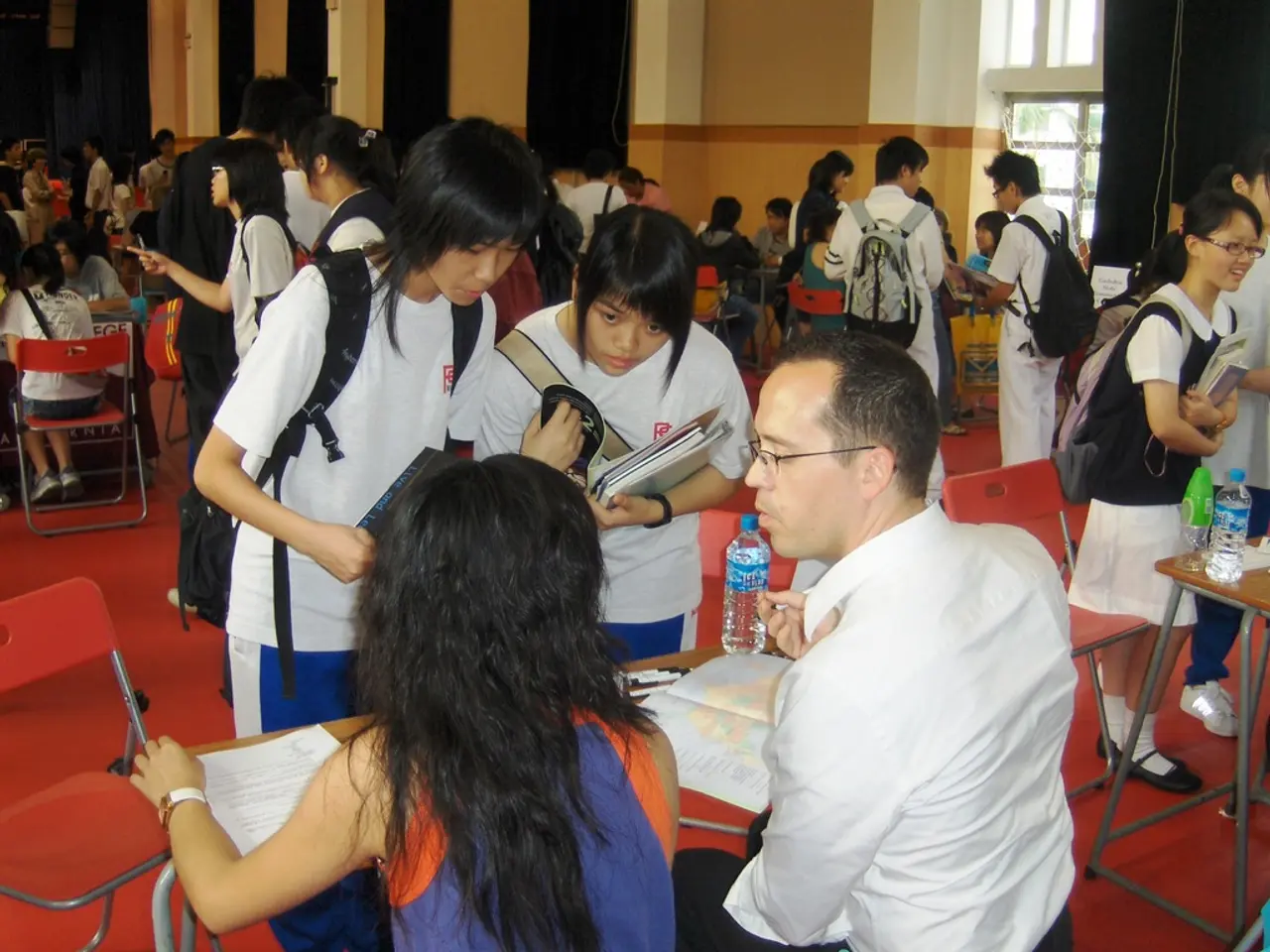Enhancing Educational Success Through Evaluation: Boosting Teaching Effectiveness for Better Student Results
In the realm of education, assessment trends are shifting towards a more dynamic, student-centric approach. The focus is moving away from traditional, isolated tests and towards authentic, integrated, and formative assessment methods.
One of the key trends is the development of balanced and intentional assessment systems. These systems are designed to support learning rather than merely measure it, with a focus on real-world application and promoting deeper student engagement.
Authentic assessment is another significant trend, with a shift towards assessments that reflect real-world scenarios, requiring students to apply knowledge and skills in meaningful contexts. This approach fosters critical thinking, problem-solving, and collaboration, essential skills for modern workplaces.
Personalized learning is also gaining traction, thanks to the integration of technology and data analytics. Assessments are becoming tailored to individual student needs, progress, and interests, improving engagement and outcomes. The role of AI in providing real-time feedback and personalized learning pathways is accelerating this trend.
Competency-based education is another emerging trend. Instead of fixed-time models, competency-based approaches assess whether students have mastered specific skills or standards, allowing for more individualized pacing and progress.
Formative feedback is increasingly important in assessment, with assessments designed to provide actionable feedback that helps both teachers and students identify strengths, address weaknesses, and adjust instruction dynamically.
Integration of Social-Emotional Learning (SEL) is also becoming more common in assessments, with measures of SEL competencies such as emotional intelligence, self-awareness, and collaboration being used.
Technological developments are playing a significant role in this transformation. AI is being used to automate grading, generate tailored test items, and provide instant, personalized feedback, helping educators reclaim instructional time while maintaining academic standards. Virtual and augmented reality are being used to simulate real-world environments, enhancing students’ ability to demonstrate competencies in context. Gamification is also being incorporated to boost motivation, engagement, and the development of higher-order skills.
Looking ahead, assessment is expected to become even more student-centered, adaptive, and integrated into daily learning. The focus will be on continuous and seamless measurement that guides instruction in real time, emphasizing human-centric skills to prepare students for roles that require complex, interpersonal, and adaptive abilities. Global and project-based learning will also become more prevalent, focusing on interdisciplinary, collaborative projects that mirror real-world challenges.
In conclusion, assessment is evolving from a static, summative function to a dynamic, formative, and integral part of the learning process. The future lies in authentic, personalized, and continuous assessment that leverages technology to support both teaching methodologies and student outcomes, while prioritizing the human skills that will define success in an AI-driven world.
In the realm of professional development for educators, exploring innovative instructional strategies, such as e-learning and gamification, is essential to stay updated with the transforming educational landscape. These strategies can help design more engaging, student-centric learning environments that foster deeper understanding and real-world application.
Owing to the growing significance of competency-based education, education-and-self-development should also include the mastery of advanced e-learning tools and resources, allowing educators to create balanced, integrated, and formative assessments that cater to individual student needs more effectively.




